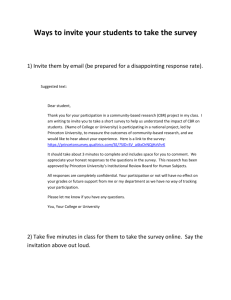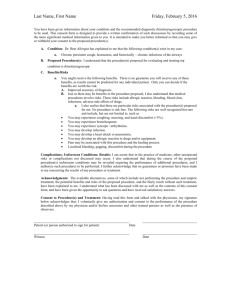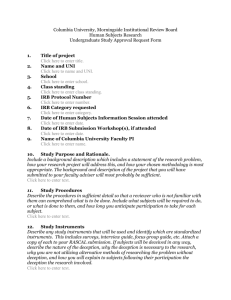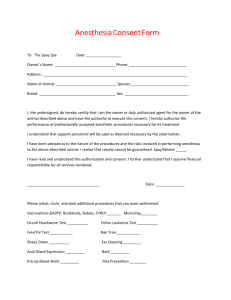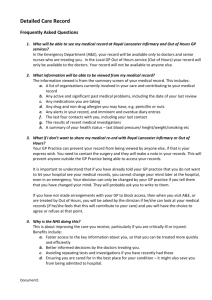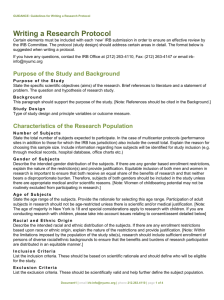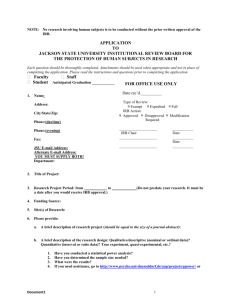Questions to Ask Regarding Community Based Research (CBR)
advertisement
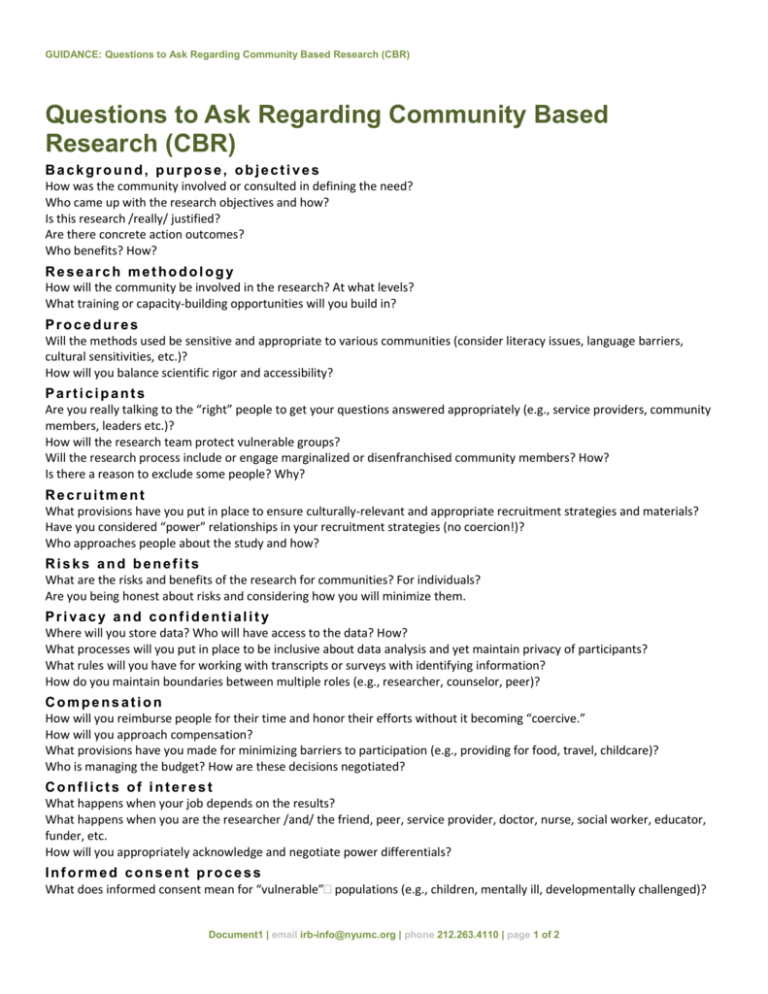
GUIDANCE: Questions to Ask Regarding Community Based Research (CBR) Questions to Ask Regarding Community Based Research (CBR) Background, purpose, objectives How was the community involved or consulted in defining the need? Who came up with the research objectives and how? Is this research /really/ justified? Are there concrete action outcomes? Who benefits? How? Research methodology How will the community be involved in the research? At what levels? What training or capacity-building opportunities will you build in? Procedures Will the methods used be sensitive and appropriate to various communities (consider literacy issues, language barriers, cultural sensitivities, etc.)? How will you balance scientific rigor and accessibility? Participants Are you really talking to the “right” people to get your questions answered appropriately (e.g., service providers, community members, leaders etc.)? How will the research team protect vulnerable groups? Will the research process include or engage marginalized or disenfranchised community members? How? Is there a reason to exclude some people? Why? Recruitment What provisions have you put in place to ensure culturally-relevant and appropriate recruitment strategies and materials? Have you considered “power” relationships in your recruitment strategies (no coercion!)? Who approaches people about the study and how? Risks and benefits What are the risks and benefits of the research for communities? For individuals? Are you being honest about risks and considering how you will minimize them. Privacy and confidentiality Where will you store data? Who will have access to the data? How? What processes will you put in place to be inclusive about data analysis and yet maintain privacy of participants? What rules will you have for working with transcripts or surveys with identifying information? How do you maintain boundaries between multiple roles (e.g., researcher, counselor, peer)? Compensation How will you reimburse people for their time and honor their efforts without it becoming “coercive.” How will you approach compensation? What provisions have you made for minimizing barriers to participation (e.g., providing for food, travel, childcare)? Who is managing the budget? How are these decisions negotiated? Conflicts of interest What happens when your job depends on the results? What happens when you are the researcher /and/ the friend, peer, service provider, doctor, nurse, social worker, educator, funder, etc. How will you appropriately acknowledge and negotiate power differentials? Informed consent process What does informed consent mean for “vulnerable”• populations (e.g., children, mentally ill, developmentally challenged)? Document1 | email irb-info@nyumc.org | phone 212.263.4110 | page 1 of 2 GUIDANCE: Questions to Ask Regarding Community Based Research (CBR) What processes do you have in place for gathering individual consent? Where written informed consent is not being obtained, explain why. What processes do you have in place for gathering community consent? Where minors are to be included as participants, provide a copy of the assent script to be used. Are your consent processes culturally sensitive and appropriate for the populations that you are working with? Outcomes and results How will the research be disseminated to academic audiences? How will the research be disseminated to community audiences? What are the new ways that this research will be acted upon to ensure community/policy/social change? Ongoing reflection and partnership development Do you have a partnership agreement or memorandum of understanding to be signed by all partners that describes how you will work together? What internal process evaluation mechanisms do you have in place? When your plans change to accommodate community concerns (as they invariably do in CBR), how will you communicate this to the IRB? Based On Ethical Dilemmas in Community-Based Participatory Research: Recommendations for Institutional Review Boards Sarah Flicker, Robb Travers, Adrian Guta, Sean McDonald, and Aileen Meagher J Urban Health. 2007 July; 84(4): 478–493. Published online 2007 April 10. doi: 10.1007/s11524-007-9165-7. Copyright © The New York Academy of Medicine 2007 Document1 | email irb-info@nyumc.org | phone 212.263.4110 | page 2 of 2

